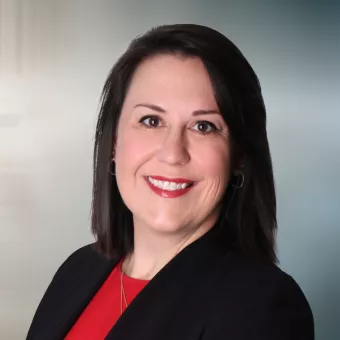
Case Overview
Being under the control of another person against your will is, unfortunately, what millions of people in the United States and around the world experience. Whether for sex or labor, human trafficking is recognized as one of the world's fastest growing criminal enterprises. Human trafficking is a criminal offense, but trafficking victims may also be able to seek justice by filing civil claims.
Key takeaways about human trafficking lawsuits
- Human trafficking to force people to perform labor or sex acts is considered modern-day slavery.
- Traffickers often use sexual and physical abuse, threats of deportation and wage theft to force victims to comply.
- Survivors of human trafficking may be able to seek justice with civil lawsuits in state or federal court.
What is human trafficking?
Human trafficking is the act of forcing a person of any age to perform labor or engage in commercial sex acts. This is a crime in many countries, though the exact definitions of human trafficking may differ. Not all human trafficking victims are transported from their home country.
Government agencies in the U.S. recognize labor trafficking and sex trafficking as the two major types of human trafficking. In both types of trafficking, traffickers profit by exploiting victims. Perpetrators typically recruit people, induce them to work and use force, fraud or coercion to compel them to keep working.
While human trafficking sometimes overlaps with human smuggling, they are not the same. Human smuggling involves illegally moving a person across a border.
Human trafficking statistics
Human trafficking may be underreported, according to experts. Still, there are a few statistics that illustrate the global and national scope of human trafficking.
- An estimated 49.6 million people across the world are human trafficking victims
- 29% of people trafficked for commercial sex between 2012 and 2020 were recruited for positions in the agriculture/farming industry
- Approximately two-thirds of labor traffickers are male, with most in their 30s and 40s
- In 2021, 33% of trafficking victims were recruited by a family member or caregiver
- People who have recently migrated or relocated were at the highest risk of being trafficked for forced labor or commercial sex
- Globally, the detection of human trafficking victims dropped by 13% during the COVID-19 pandemic, but soon rose 25% higher by 2022
- From 2012 to 2022, the number of people prosecuted for human trafficking doubled from 805 prosecutions to 1,656
Get help from a human trafficking attorney
We understand that human trafficking survivors have a lifetime of recovery ahead and may need assistance to regain their lives. Discussing your rights with an attorney can help. If you or a loved one has been the victim of human trafficking, you may have a civil claim. Our attorneys have helped people in a wide range of human rights cases.
For more information, you may contact one of our human trafficking lawyers at 1.800.768.4026 or complete this form.
What industries are known for human trafficking?
Some industries may turn a blind eye to human trafficking situations. Many of these industries demand long hours, pay low wages and expose workers to dangerous conditions.
- Agriculture, commercial fishing: Industry practices often involve housing workers in cramped conditions, charging them for sponsorship and changing agreed-upon pay structures.
- Carnivals: Often on the move from one place to another, making it easy to hide trafficking situations.
- Construction: Dangerous construction, low pay and nonexistent benefits are common in the construction industry, making it a fertile ground for human trafficking.
- Domestic work: Au pairs, nannies, maids and other household workers are commonly exploited.
- Factory work: Many common consumer goods are made abroad by people working under grim conditions.
- Hotel industry: The hospitality industry is known for sex trafficking out of hotel rooms, though other hotel employees are also susceptible to labor trafficking.
- Landscaping: Workers are often restricted by H-2B visas, making it easier for them to be victimized by threats and other forms of coercion.
- Restaurants: The food service sector is known for wage theft and long hours – and many employees are hidden from public sight.
- Salons: Language barriers can make recent immigrants susceptible to labor and sexual exploitation in beauty salons.
- Traveling sales: Door-to-door salespeople are often on the move, making it hard to pin down potential trafficking situations.
How to recognize signs of human trafficking
Human and sex trafficking activities can occur in plain sight. It can happen anywhere, from the largest global hotel brands to local landscaping services. Below are some warning signs of trafficking and exploitation.
- Employers monitor workers frequently, control their passports and other personal documents or threaten them with physical harm or deportations
- Living conditions are crowded, dangerous or isolated
- Salary is garnished or not as agreed-upon
- Working conditions are dangerous
How survivors of human trafficking can seek justice
Victims can file human trafficking or sex trafficking lawsuits. Plaintiffs can name defendants such as traffickers or entities that ignored their situation. When corporations enable traffickers to violate human rights for illegal gains, the civil court system can rightly intervene, providing access to justice. We represent survivors in litigation seeking to hold negligent businesses accountable.
An attorney with experience in human and labor trafficking lawsuits can provide a case evaluation and help you navigate the legal process.
What companies have been sued for human trafficking?
Victims of sex trafficking have filed lawsuits against major hotel chains such as Red Roof Inns, Wyndham Hotels & Resorts, Motel 6 and Best Western International. The number of plaintiffs has grown to the point where attorneys want to consolidate the cases into a multidistrict litigation (MDL) docket in federal court. An MDL is a mass court action similar to a class action lawsuit. A federal court denied a previous attempt to consolidate cases against hotels, with judges stating that there were too few cases and the circumstances differed too much.
On March 17, 2025, three Philadelphia hotels agreed to a $17.5 million settlement with three women who claimed they were sex trafficked as minors. The women claimed Motel 6, Days Inn and North American Motor Inn locations on Roosevelt Boulevard didn’t have adequate security or train staff members to spot signs of trafficking, sex abuse and other illegal activities.
A lawsuit filed in Los Angeles County Superior Court alleges that hotel staff employed by the defendants knew the plaintiff was being exploited. The suit also claims that the income stream from sex traffickers made them indifferent to the plaintiff’s situation. The suit also alleges that hotel employees actively participated in sex acts involving the plaintiff.
Trafficking lawsuits in other industries
In March 2025, a group of Indonesian fishermen filed a lawsuit against Bumble Bee Foods. The allegations include physical and emotional abuse, untreated injuries, debt bondage and unreasonable working hours.
Workers from Guatemala also filed a lawsuit against Centrum Valley Farms in March 2025. They allege that the commercial egg supplier denied workers overtime pay and threatened them with deportation.
Motley Rice investigated claims that people were trafficked by the luxury department store Harrods between 1985 and 2010. The survivors said they endured sexual assault, physical abuse and labor exploitation.
Human trafficking whistleblowers
People who have witnessed human trafficking can help combat human slavery as whistleblowers. Motley Rice attorneys work closely with potential whistleblowers to ensure that their rights are protected and that sensitive information is properly handled.
Our whistleblower attorneys have represented numerous individuals in a broad range of whistleblower lawsuits, including SEC and qui tam cases. We understand the fears and challenges associated with blowing the whistle and are prepared to help.
How to report human trafficking anonymously
If you see red flags related to human trafficking, don’t attempt to help the victim on your own. Instead, contact the National Human Trafficking Hotline. Here’s how to reach the hotline:
- Phone (available 24/7): 1-888-373-7888
- Text: 233733 (message and data rates apply)
- Online chat: humantraffickinghotline.org/chat
- Online reporting form: https://humantraffickinghotline.org/en/report-trafficking
Interpreters are available.
You can remain anonymous when reporting a situation involving an adult to the National Human Trafficking Hotline. Staff members may be required to report your name or other identifying information to Child Protective Services or local law enforcement agencies.
What are human trafficking laws in the United States?
The U.S. first addressed human trafficking at the federal level with the Trafficking Victims Protection Act (TVPA) of 2000. Since then, federal lawmakers have built onto the TVPA anti-trafficking framework with additional legislation like the Trafficking Victims Protection Reauthorization Act (TVPRA), which was first introduced in 2003.
TVPA and the federal laws that followed it focus on three key elements: prevention, protection and prosecution.
Four bills are now part of the TVPA:
- The Abolish Human Trafficking Act of 2017
- The Frederick Douglass Trafficking Victims Prevention and Protection Reauthorization Acts of 2018
- The Trafficking Victims Protection Act of 2017
- Trafficking Victims Protection Reauthorization Act of 2017
These four bills granted new authority to federal agencies such as the Department of Health and Human Services, Department of Homeland Security, Department of Justice, Department of Labor and Department of State. The legislation also provided more resources to Polaris, which operates the National Human Trafficking Hotline.
Frequently asked questions about human trafficking
What does “human trafficking” really mean?
Human trafficking involves “the use of force, fraud, or coercion to obtain some type of labor or commercial sex act,” according to the U.S. government. Exploitation is the defining characteristic of human trafficking, not whether someone is forcibly moved across state or national borders against their will. Trafficking victims are often smuggled, but a person can also be trafficked in their home state or country.
How does a civil human trafficking lawsuit differ from a criminal case?
A criminal court punishes those who break criminal laws. The civil judicial system allows people to seek accountability from alleged wrongdoers by suing them. A successful lawsuit can force businesses to change the way they operate and/or financially compensate plaintiffs for damages.
Does a trafficker need to be criminally convicted in order to be sued?
No, traffickers do not need to be criminally convicted for victims to file a civil lawsuit against them.
How can civil litigation help human trafficking victims?
Civil litigation can combat human trafficking by:
- Discouraging would-be traffickers
- Uncovering details previously unknown through a thorough investigation
- Encouraging witnesses to report suspicious behavior
- Empowering victims to confront or escape traffickers
- Assisting victims’ recovery and restitution
If a survivor is worried about their safety or privacy, can they remain anonymous if they come forward?
Laws vary by state, but a human rights lawyer can seek a court order to help a survivor protect their identity if the state doesn’t grant such protections. An attorney will not identify their client publicly without their permission.
What is a statute of limitations, and how could it affect a potential case?
A statute of limitations (SOL) is the window of time that a person or entity has to file a legal claim. After the SOL passes, claims are forever barred. Statutes of limitation vary by state and type of case. For example, if someone was the victim of trafficking in 1999, many states may prohibit them from filing a claim because the wrongdoing occurred more than 20 years ago. However, some jurisdictions have enacted temporary look-back windows that might allow survivors to file a lawsuit.
Does a person have to be a current victim of trafficking to file a claim?
No, civil litigation is not limited to just people who are currently being trafficked. Once victims escape their traffickers and have had some time to process the abuse they experienced, they are more emotionally able to pursue litigation. This is a normal response. A human trafficking lawyer can help survivors navigate applicable statutes of limitations and evaluate their eligibility to file a lawsuit.
How could contacting a human trafficking lawyer benefit a survivor or a loved one who was trafficked?
Pursuing a legal claim is a complex process that can take years from start to finish. A trauma-informed lawyer with experience in human trafficking law can provide legal guidance and advice to help survivors meet their needs and goals.
Our experience helping those impacted by human trafficking
Motley Rice has a wide range of experience representing laborers and victims in human trafficking cases. For example, our law firm assisted with filing a federal civil complaint against several leaders in the United Arab Emirates (UAE) in 2005 for their alleged involvement in the kidnapping, human trafficking and child enslavement of young boys who were forced to work as jockeys in camel races. While the civil suit was dismissed, the UAE later banned the use of children as jockeys for camel races. The UAE also began a two-part program with UNICEF to return trafficked and enslaved children to their home countries and compensate them for injuries they suffered.
Motley Rice attorneys are also familiar with the sensitive nature of sexual abuse cases, which are often associated with human trafficking. Motley Rice has worked in conjunction with state attorneys general and government agencies to collaborate on issues that are of great concern to the public. We have the resources and experience needed to go up against some of the nation’s largest corporations on behalf of victims.
Community involvement
Motley Rice’s advocacy continues outside of the courtroom. We are proud to support South Carolina-based nonprofits Doors to Freedom and the Dee Norton Child Advocacy Center, local advocacy groups that provide a safe haven and access to services for victims of sex trafficking.
What is human trafficking?
What industries are known for human trafficking?
How to recognize signs of human trafficking
How survivors of human trafficking can seek justice
What companies have been sued for human trafficking?
Human trafficking whistleblowers
What are human trafficking laws in the United States?
Frequently asked questions about human trafficking
Our experience helping those impacted by human trafficking
- Sources
- Bureau of Justice Statistics. Human Trafficking Data Collection Activities, 2024.
- Department of Homeland Security. What Is Human Trafficking?
- Greenpeace. Indonesian fishers file historic human trafficking lawsuit against major US seafood company.
- Lifeway Network. 10 Industries Known for Human Trafficking.
- National Human Trafficking Hotline. Federal Law.
- NBC Philadelphia. 3 Northeast Philly hotels to pay $17.5M to sex trafficking victims.
- New York Times. Woman’s lawsuit claims Motel 6 and other chains allowed her to be raped nearly 1,000 times.
- Polaris Project. The 2019 Trafficking Victims Protection Reauthorization Act: A topical Summary and Analysis of Four Bills.
- Polaris Project. Polaris Analysis of 2021 Data from the National Human Trafficking Hotline.
- Reuters. Hotels in human trafficking lawsuits face second bid for case consolidation.
- Statista. Share of victims of trafficking for sexual exploitation worldwide between 2012 and 2020, by industry of exploitation.
- Stop the Traffik. Definition and Scale.
- United Nations. Global Report on TRAFFICKING IN PERSONS 2024.
- U.S. Department of Transportation. Human Trafficking 101.


